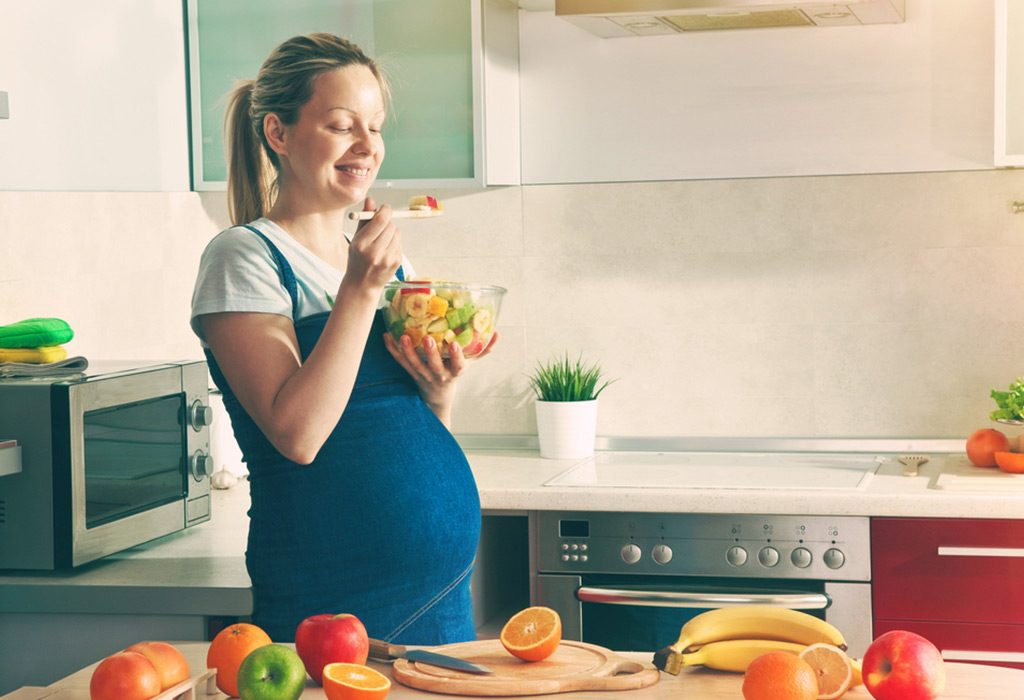Pregnancy can bring on all sorts of cravings for certain foods, but there are certain foods you should eat and not eat during pregnancy. It’s important to remember that everything you eat provides nutrients for your growing baby, so eating healthy is always best. As your body is changing, you need additional nutrients, vitamins, and minerals as well as an additional 350 – 500 calories a day, especially during your 2nd and 3rd trimesters. That’s not to say you can’t splurge when the craving hits, but during pregnancy there are certain foods that are better for you and some foods you should avoid!
10 Foods to Eat During Pregnancy
- Yogurt. Yogurt meets the increased protein and calcium your body and growing baby needs, and the probiotics may reduce the risk of complications and help your tummy settle.
- Beans. Beans provide folate, fiber, and other nutrients and may reduce the risk of some birth defects and diseases.
- Sweet Potatoes. Sweet potatoes are a great source of beta-carotene. Your body turns beta-carotene into vitamin A, which is important for the growth of cells in your baby.
- Salmon. Eating salmon 2 – 3 times a week will help your baby with brain and eye development, is a natural source of vitamin D and contains essential omega-3 fatty acids.
- Eggs. Whole eggs (yolk and white) are nutritious and a great way to increase your nutrient intake. They contain choline, which helps with brain health and development.
- Dark leafy greens. Whether you are eating broccoli or kale, dark leafy greens contain almost every nutrient a pregnant woman needs. And, because they are rich in fiber, they also act as a natural laxative to prevent or treat constipation.
- Berries. Just in time for summer, berries contain water, carbs, vitamin C, fiber, vitamins, antioxidants, and plant compounds. Oh, and they taste delicious!
- Avocados. The avocado contains high amounts of monounsaturated fatty acids, fiber, folate, and potassium. This fruit helps improve fetal health and relieve leg cramps.
- Whole grains. Whole grains are packed with fiber, vitamins, and plant compounds. They are also rich in B vitamins, fiber, and magnesium.
- Lean meats. For those of you who do eat meat, try leaner cuts of beef and pork. These are rich in iron, a great source of high-quality protein, and provide important nutrients during pregnancy.
10 Foods to Avoid During Pregnancy
We’ve told you what foods are great to eat during pregnancy, but there are certain foods that can be harmful to your growing baby. Some of these foods can be eaten occasionally and some should be avoided completely.
- Sushi or raw shellfish. If you love eating sushi, hold off until after the baby is born. Raw fish and shellfish can be contaminated with bacteria and parasites and may cause adverse health effects and harm both you and your baby.
- Raw and processed meat. Try to avoid hot dogs and processed meats, as these could be contaminated with various bacteria during the processing and storage. If you are craving a hot dog, reheat it until it is steaming hot before partaking! As a general rule, all meat should be cooked all the way through to avoid harmful bacteria.
- Raw eggs. Raw eggs can be contaminated with Salmonella, which may lead to sickness and an increased risk of premature of stillbirth. Some foods that contain raw eggs are hollandaise sauce, homemade mayonnaise, certain salad dressings, homemade ice cream, and cake icings.
- Raw sprouts. If you are craving a salad with raw sprouts, avoid them. They might be contaminated with Salmonella or other bacteria inside the seeds. If you do have a serious want of sprouts, be sure they are cooked before you eat them.
- Unpasteurized milk. Consuming raw milk can infect you with an array of harmful bacteria, such as Listeria, Salmonella, E. coli, and Campylobacter. These infections can have life-threatening consequences for your baby.
- Alcohol. Alcohol increases the risk of miscarriage and stillbirth and even a small amount can negatively impact your baby’s brain development and cause fetal alcohol syndrome. It’s best to avoid drinking altogether during pregnancy, since no level of alcohol has been proven safe during pregnancy.
- Fish containing high-mercury. Not all fish are high in mercury, but it’s important to avoid those that are. Mercury is highly toxic to your nervous system, immune system, and kidneys and can cause serious developmental problems in children. High mercury fish include shark, swordfish, king mackerel, tuna, marlin, and tilefish from the Gulf of Mexico.
- Raw cookie dough. Who doesn’t love raw cookie dough? But, while you are pregnant, bake those cookies first before eating them! Raw cookie dough may contain Salmonella from the raw eggs.
- Soft unpasteurized cheese. Just like unpasteurized milk, avoid cheeses that have not been pasteurized as they may contain E. coli or Listeria. Some of the cheeses to avoid are brie, feta, camembert, Roquefort, queso blanco, and queso fresco.
- Unpasteurized juice or cider. Drinking unpasteurized juice and fresh squeezed juice might contain E. coli. If you do find yourself with unpasteurized juice or cider, boil it first for at least a minute, chill, and enjoy!
Although your cravings might lead you to some of the foods on the do not eat list, remember, the health of your baby depends on you, and what you eat during pregnancy affects your energy, well-being, and directly affects the health and development of your baby. We hope this list of what to eat and what not to eat during pregnancy is helpful!
If you have any questions about pregnancy, a birth plan, or what to expect during labor, delivery, or after the new baby comes, set up a maternity consultation with Gabriela Gerhart and have all your questions answered.



